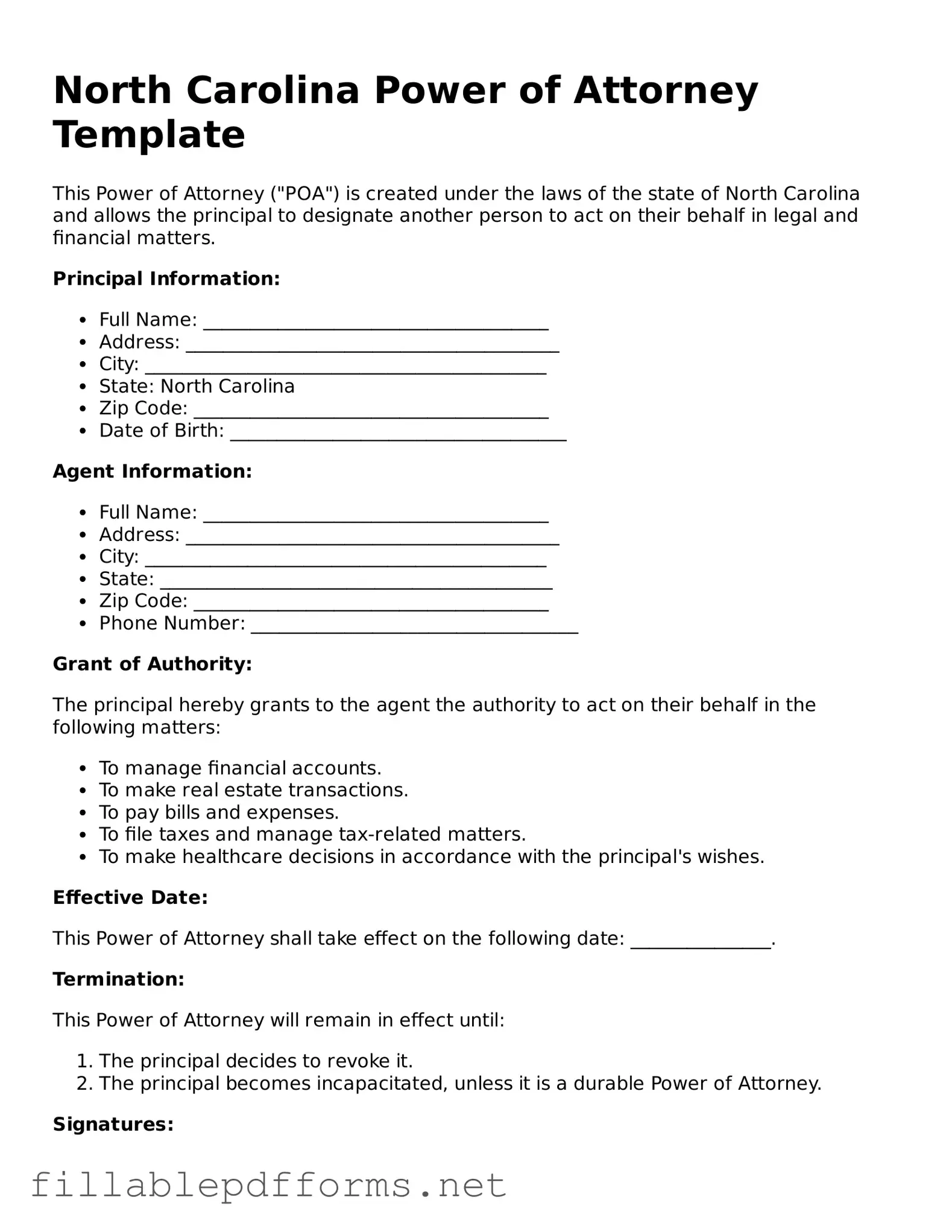Attorney-Verified Power of Attorney Form for North Carolina State
A North Carolina Power of Attorney form is a legal document that allows an individual, known as the principal, to grant another person, referred to as the agent, the authority to act on their behalf in various matters. This can include financial decisions, healthcare choices, or other important tasks. Understanding how this form works is essential for anyone looking to ensure their wishes are respected when they are unable to make decisions for themselves.
Launch Editor Here

Attorney-Verified Power of Attorney Form for North Carolina State
Launch Editor Here

Launch Editor Here
or
▼ Power of Attorney PDF
Almost there — finish the form
Complete Power of Attorney online fast — no printing, no scanning.